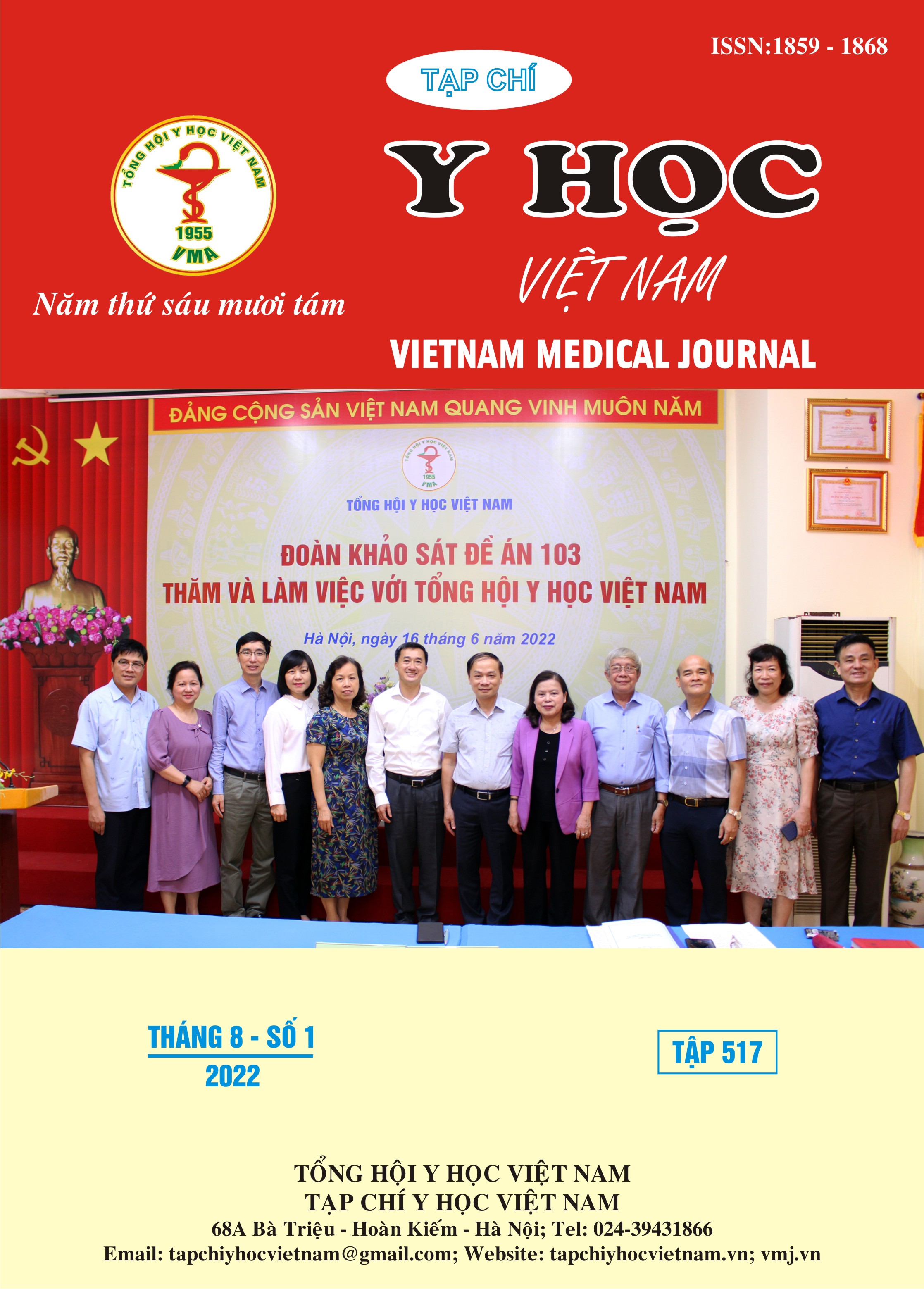OUTCOMES OF ACUTE SUBDURAL HEMATOMA TREATMENT IN THE ELDERLY AT THAI BINH GENERAL HOSPITAL
Main Article Content
Abstract
Objectives: To access clinical characteristics, CT images and management of acute subdural hematoma in the elderly. Methods: Cross-sectional descriptive study was conducted in 76 elderly patients with acute subdural hematomas treated at Thai Binh General Hospital between February and September 2020. Results: 76 elderly patients with acute traumatic subdural hematoma, out of a total of 534 traumatic brain injury patients (14.2%) included: 53 males (69.7%), 23 females, accounting for (30,3%); Median age: 71.7 ± 8.8 (from 60 to 96 years of age). Causes: Falls in the elderly accounted for the highest rate of (51.3%); 31 patients incurred traffic accidents, constituting (40.8%). Common symptoms: headache (86.8%), vomiting (23.7%), scalp hematoma (23.7%), head wound (21.1%), hemiplegia (9.2%). The majority of cases were mild (86.8%), then moderate (9.2%), and severe (4.0%). Nonoperative treatment made up the majority (73.7%), surgeries amounted to (22.4%). Good hospital discharge results were (84.2%), fair (7.9%), moderate (2.6%), vegetative state and death (5.2%). Conclusion: Acute subdural hematoma in the elderly due to trauma added up to the rate of (14.2%). Falls were responsible for the highest in causes, nonsurgical treatment was the main therapy. Bad outcomes were compromised of (5.2%).
Article Details
Keywords
acute subdural hematoma in the elderly, acute subdural hematoma, TBI
References
2. Phạm Tỵ (2010), Chấn thương sọ não không có chỉ định phẫu thuật ở người cao tuổi. Tạp chí Y học Việt Nam tháng 5-số 1/2010.
3. Gaist D, García Rodríguez LA, et al (2017): Association of antithrombotic drug use with subdural hematoma risk. JAMA 317:836–846, 2017.
4. Panagiotis Kerezoudis, et al (2020): Morbidity and mortality in elderly patients undergoing evacuation of acute traumatic subdural hematoma. Neurosurg Focus Volume 49,October, 2020.DOI: 10.3171/2020.7.FOCUS20439.
5. Lara A Harvey, et al (2012). Traumatic brain injury in older adults: characteristics, causes and consequenes. Injury, 2012 Nov;43(11): 18216. doi:10.1016/j.injury.2012.07.188.Epub 2012 Aug 11.


